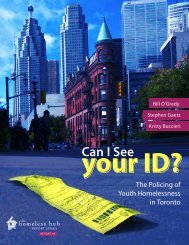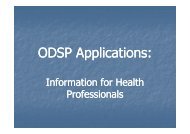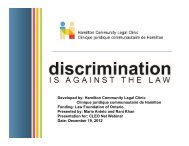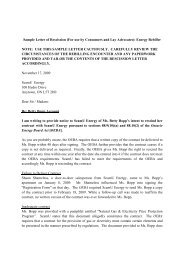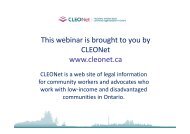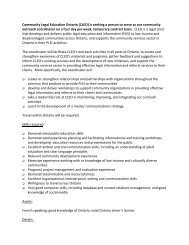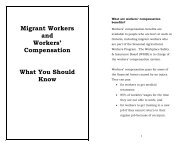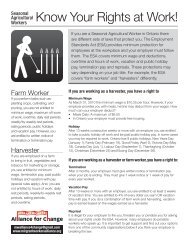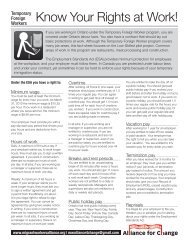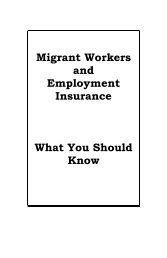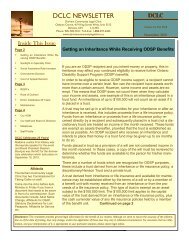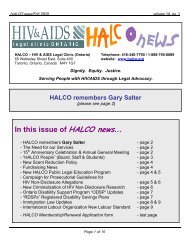Canadian Centre for Elder Law A Practical ... - Your Legal Rights
Canadian Centre for Elder Law A Practical ... - Your Legal Rights
Canadian Centre for Elder Law A Practical ... - Your Legal Rights
You also want an ePaper? Increase the reach of your titles
YUMPU automatically turns print PDFs into web optimized ePapers that Google loves.
!• in relation to any intervention to assist or protect a person the paramountconsideration shall be the best interests of that person.4. Responding to <strong>Elder</strong> Abuse and NeglectThe Adult Protection Act (s. 4(1)) states that any person may report to the Minister ofHealth and Wellness if they have reasonable grounds <strong>for</strong> believing a person is, or is at riskof being, in need of assistance or protection. An adult is in need of protection if he:• is a victim of abuse or neglect or at risk• is incapable of fending <strong>for</strong> herself and is unable to make provision <strong>for</strong> necessarycare, or• who refuses, delays or fails to arrange <strong>for</strong> or comply with necessary care, aid orattention, AND• requires “legally authorized protective intervention in order to preserve essentialsecurity and well-being” (s. 1(i)).5. <strong>Elder</strong> Abuse and Neglect in the WorkplaceA person who reports a case of suspected need of assistance or protection cannot beheld liable with respect to making the report, unless it was made maliciously or withoutreasonable and probable cause (s. 4(3)).No person is allowed to reveal the identity of person who reports a case of suspectedneed of assistance or protection (s. 4(2)).6. Confidential In<strong>for</strong>mationProfessionals, non-professional staff and volunteers must normally get consent from anolder adult be<strong>for</strong>e disclosing personal or health in<strong>for</strong>mation.The FOIPPA Reg states that the provincial privacy law covers health in<strong>for</strong>mation in thepossession of government departments and agencies (s. 5(1)). The FOIPPA states that apublic body may disclose personal in<strong>for</strong>mation <strong>for</strong> the purpose of complying with any law(s. 37(1)(d) and (e)), to assist with a police investigation (s. 37(1)(o), or if the head ofthe public body believes, on reasonable grounds, that the disclosure will avert or minimizean imminent danger to the health or safety of any person (s. 37(1)(cc)).Provincial and community hospitals may disclose personal health in<strong>for</strong>mation withoutconsent as required by the Hospitals Act (s. 8(2)(h)).The Federal Act applies to private organizations like private care facilities. It permitsdisclosure where required by a law (s. 7(3)(i)) and under the following circumstancesthat might apply to elder abuse:Disclosure is made to a person who needs the in<strong>for</strong>mation because of an emergencythat threatens the life, health or security of an individual and, if the individual whomthe in<strong>for</strong>mation is about is alive, the organization in<strong>for</strong>ms that individual in writingwithout delay of the disclosure (s. 7(3)(e)).! "#!




